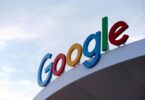Bret Swanson
Twitter and Netflix are very different companies. As cousins in the Big Tech universe, however, they helped define the last digital decade. Now, each is at a crossroads: Yesterday, Twitter accepted Elon Musk’s $44 billion takeover bid, while the market value of Netflix dropped by nearly half over the last month, to $90 billion from around $180 billion.
Twitter was vulnerable to Musk’s free-speech assault because its stock languished for nearly a decade, failing to move appreciably higher than its initial public offering (IPO) price in 2013. Netflix has followed a much different path since its 2002 IPO—first shipping DVDs through the mail, then achieving hyper-growth with a switch to broadband streaming. When it announced its first subscriber drop in 10 years last week, however, its stock plummeted to a five-year low.
Source: TradingView and author’s calculations.
The jam-packed video streaming world is competing away what used to be easy profits for the early-mover Netflix. Now Amazon Prime, Apple TV+, Disney+, HBO Max, Hulu, and others are flooding the video market, often with content of far higher quality than Netflix’s. My outlook from 2014 is looking pretty good: “We are only in the middle of the beginning of what will be a decade-long process of sorting out the video content, creation, distribution, aggregation, user-interface, viewing, advertising, and subscription markets.”
Crucially, I predicted Netflix’s lead in content aggregation would not be good enough to win the race.
The cost of content and broadband’s empowerment of consumers will tend to erode the power of those that only aggregate.
Netflix and HBO, therefore, will likely succeed largely to the extent they can produce compelling original content. HBO has the upper hand. . . . Apple and Amazon’s quasi a la carte models, on the other hand, better fit a different set of consumers who may spend less time watching but are more discriminating in their choices. Apple and Amazon have more up-to-date content, rivaling the on-demand libraries of the MVPDs, and they also provide access to a wide range of networks for those who have truly “cut the cord”—something Netflix doesn’t offer. (Emphasis in the original.)
Musk, of all people, believes Netflix’s content-quality problem is a result of excessive “wokeness.” It’s hard to disagree. The fact that Netflix employees nearly chased away comedian Dave Chappelle, the company’s biggest star, probably says a lot about the rest of its content offerings.
While Netflix suffers a woke hangover, Twitter may be waking up. After the Twitter board adopted a poison pill in response to Musk’s surprise offer, he quickly secured funding via his own cash and a mix of debt and margin financing. Over the weekend, Twitter’s board finally relented.
A self-described “free speech absolutist,” Musk says the new Twitter will greatly expand the window of legal speech and speakers. Yet Barack Obama recently warned that “disinformation” is threatening “our democracy” and called for more, not less, “content moderation” by Big Tech. (AEI’s Mark Jamison argues in response that more content moderation is often code for censorship.)
I agree with Musk that censorship and other forms of illiberalism and premature certainty are the real threats to democracy. The churn of the market, where a benevolent centi-billionaire can liberate Twitter and unhappy consumers can send Netflix a signal, is the preferred corrective. An open Twitter may expose bad behavior at YouTube and Facebook, while Netflix may have to reconsider its ideological programming.
I don’t think we are out of the woods yet, however. Today’s censors have made “misinformation” their central organizing theme. The totalitarian tools of intimidation and erasure needed to suppress inconvenient ideas are seductive and powerful and will not be lightly relinquished. In January 2021, I argued that even if we generate free alternatives to the current oppressive social media outlets, censorship would likely move to other chokepoints:
Entrepreneurs are building (and millions of users fleeing to) alternative outlets, apps, and channels. That’s the genius of the Internet—unlimited space to innovate and choose. Bitcoin and crypto communities are just one important new path to decentralized independence.
As freedom-seekers launch their own websites, servers, and streams, the aggressive censors will hunt them, demanding cancellation everywhere along the communications stack, eventually reaching the core of the network. And then we will have come full circle. They will demand ISPs block, throttle, and erase. And that government, under the guise of net neutrality, enforce their truth.
Indeed, crowdfunding apps, payment networks, and other layers of the digital infrastructure have gotten more and more political. Venture honcho and all-around seer Marc Andreessen seems to agree. “I predict,” he tweeted last week, “essentially identical censorship/deplatforming policies across all layers of the legacy Internet stack. Client-side & server-side ISPs, cloud platforms, CDNs, payment networks, client OSs, browsers, email clients. With only rare exceptions. The pressure is intense.”
Prepare for phase two of the information wars.
Courtesy: (AEI.org)






